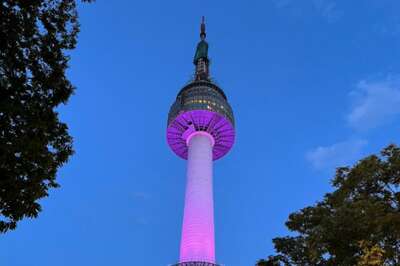
views
Cairo, Egypt: Thousands of anti-government protesters clashed with police in the northern Egyptian city of Alexandria on Saturday after President Hosni Mubarak spurned demands that he end his 30-year authoritarian rule.
A Reuters witness said police used teargas and live ammunition against demonstrators in Alexandria. Protesters also gathered on a main square in the capital Cairo in defiance of military orders for them to disperse.
The fresh unrest broke out as Mubarak clung to power, replacing his cabinet in an effort to appease angry Egyptians, complaining about poverty, corruption and unemployment.
The president ordered troops and tanks into Cairo and other cities overnight and imposed a curfew in an attempt to quell the protests that have shaken the Arab world's most populous nation, a key US ally, to the core.
Despite dozens of deaths in clashes on Friday, Egyptians said they would press on with protests until Mubarak quits.
"We are not demanding a change of cabinet, we want them all to leave, Mubarak before anyone else," said Saad Mohammed, a 45-year-old welder who was among about 2,000 people gathered in Cairo's central Tahrir Square.
The unrest, which follows the overthrow of Tunisian strongman Zine al-Abidine Ben Ali two weeks ago in a popular uprising, has sent shock waves through the Middle East, where other autocratic rulers may face similar challenges.
The capital was strewn with wreckage from a day of protests on Friday when protesters fought running battles with police firing rubber bullets, teargas and wielding batons -- an unprecedented turn of events in the tightly-controlled country.
Government buildings, including the ruling party headquarters, still blazed on Saturday morning after being set alight by demonstrators who targeted symbols of Mubarak's rule.
According to a Reuters tally, at least 74 people have been killed in the unrest. There was no official figure. Medical sources said at least 1,030 people were injured in Cairo, but with more protests starting throughout the country, the number was bound to rise.
As well as Cairo and Alexandria, clashes have also occurred in Suez, site of the strategically important canal.
The demonstrators, many of them young urban poor and students, complain of repression, corruption, and economic despair under Mubarak, who has held power since the 1981 assassination of President Anwar Sadat by Islamist soldiers.
Mubarak, whose government still rules with emergency laws, promised to address Egyptians' grievances in a television address on Friday night. He sacked the cabinet but made clear he intended to stay in power and he condemned the violence.
The cabinet was meeting on Saturday to formalise the move.
So far, the protest movement seems to have no clear leader or organisation even if Mubarak did wish to open a dialogue.
Prominent activist Mohamed ElBaradei, a Nobel Peace Laureate for his work with the UN nuclear agency, returned to Egypt from Europe to join the protests. But many Egyptians feel he has not spent enough time in the country.
In an interview with France 24 television, El Baradei said Mubarak should step down and begin a transition of power.
"There is a consensus in Egypt in every part of society that this is a regime that is a dictatorship, that has failed to deliver on economic, social, and political fronts," he said.
"We need a new beginning."
The Muslim Brotherhood, an Islamist opposition group, has also stayed in the background, although several of its senior officials have been rounded up. The government has accused it of planning to exploit the protests.
The deployment of army troops to back up the police showed that Mubarak still has the support of the military, the country's most powerful force. But any change of sentiment among the generals could seal his fate.
The army told Egyptians on Saturday not to gather in groups and to observe the curfew, which was extended by two hours to begin at 4 PM (1400 GMT).
Tanks were parked on roads leading into Tahrir Square, which was strewn with rubble, burned tyres and charred wood that had been used as barricades overnight.
The number of protesters was fewer than in previous days but they were nonetheless defiant.
"This is unacceptable, Mubarak must step down. Public unrest will not stop until this is achieved," said Mohammed Essawy, a 26-year-old graduate student.
Protesters mocked Mubarak's sacking of his cabinet as an empty gesture.
Revolution in the air
Mahmoud Mohammed Imam, a 26-year-old taxi-driver, said: "All he said was empty promises and lies. He appointed a new government of thieves, one thief goes and one thief comes to loot the country."
"This is the revolution of the people who are hungry, this is the revolution of the people who have no money against those with a lot of money."
The final straw appeared to be the prospect of elections due to be held in September. Until now few had doubted that Mubarak would remain in control or bring in a successor in the shape of his 47-year-old son Gamal.
It also poses a dilemma for the United States. Mubarak, 82, has been a close ally of Washington and beneficiary of US aid for decades, justifying his autocratic rule in part by citing a danger of Islamist militancy.
Egypt plays an important role in Middle East peacemaking and was the first Arab nation to sign a peace treaty with Israel.
US President Barack Obama said he had spoken to Mubarak shortly after his speech on Friday and urged him to make good on his promises of reform.
"I want to be very clear in calling upon the Egyptian authorities to refrain from any violence against peaceful protesters," Obama said. US officials made clear that $1.5 billion in aid was at stake.
Anthony Skinner of political risk consultancy Maplecroft said Mubarak's conduct was reminiscent of that of Tunisia's Ben Ali, who fired his cabinet hours before he was forced to flee.
"Mubarak is showing he is still there for now and he is trying to deflect some of the force of the process away from himself by sacking the cabinet. We will have to see how people react but I don't think it will be enough at all."


















Comments
0 comment